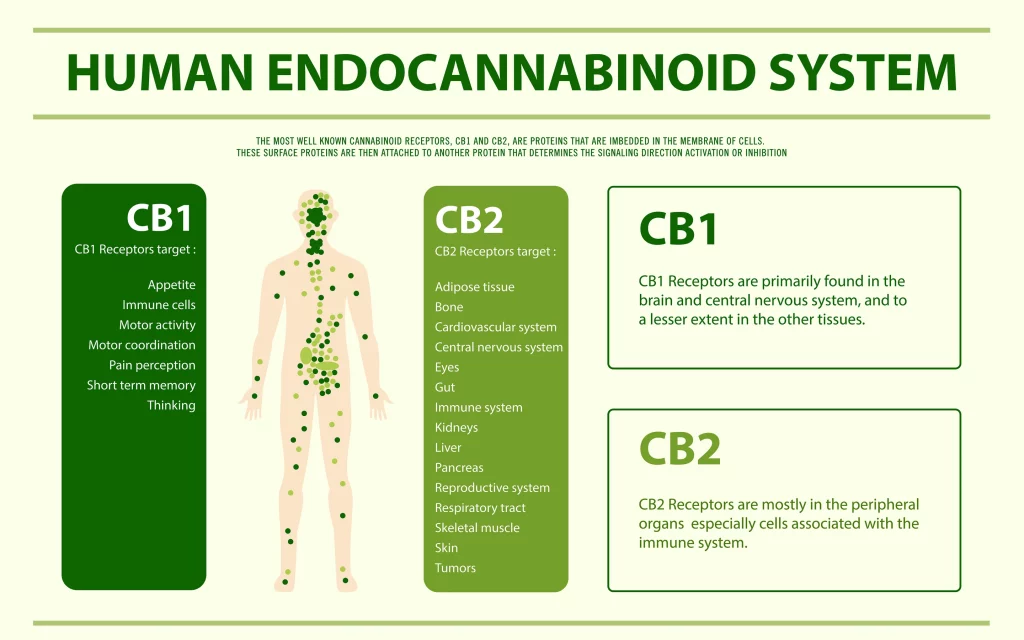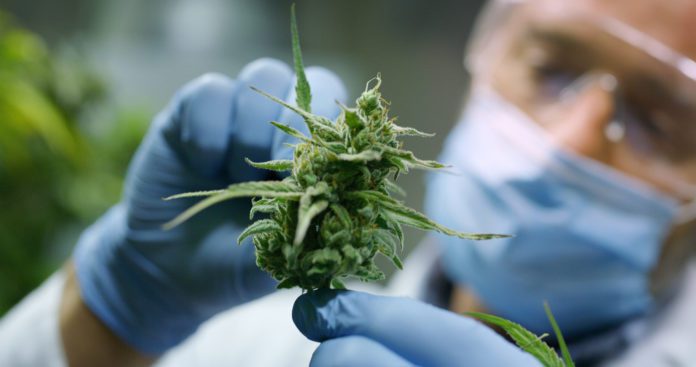Learning how THC works in the human body is important, especially if you’re interested in using marijuana as a treatment for cancer. It has been found to affect several systems in the body, including the circulatory system, immune system, muscular and nervous systems, digestive tract, and immune system. The educational system focuses on the circulatory and immune systems. It also stresses the importance of drug processing and explains how cannabinoids function in the human body.
Researchers believe that cannabinoids affect the human body by interacting with the endocannabinoid system, a complex cell signaling system. THC acts in the brain by influencing the production of endocannabinoids. The endocannabinoid system produces endocannabinoids in the body that regulate internal functions. These are important in treating various conditions.

CB Receptors in The Body Allow THC To Work
THC works by binding to certain receptors in the body. It also binds to CB1 and CB2 receptors, which are located in specific regions of the brain. These receptors help THC interact with the ECS, which is why it has been shown to be so beneficial in the treatment of inflammatory conditions. Experts believe that the primary role of the ECS is maintaining homeostasis, which is a common symptom of autoimmune disorders.
THC is rapidly absorbed into the blood and distributed to the rest of the body. It is not metabolized in the liver, so the effects of cannabis in the human body happen immediately after consumption. Inhaling THC has a half-life of nineteen hours, while THC in the blood has a half-life of 50 hours. The effects of THC on the human body are not immediate.
THC Affects Balance, Psychomotor Control, And Cognition
In addition to affecting mood, THC affects balance, psychomotor control, and cognition. In psychomotor control tests, cannabis affects the ability to track a moving point on a screen. This impairment may contribute to human cannabis users’ tendency to isolate themselves or remain immobile for long periods of time. This can cause other problems. The effects of high thc cannabis on the brain are varied, but overall, they can be useful for treatment of many conditions.
When smoked, THC diffuses into the lungs and travels to the brain, where it activates CB1 receptors. But unlike synthetic cannabinoids, THC does not cause an immediate, drastic response. Instead, it floods the endocannabinoid system with signals, causing it to react with an altered perception of reality. This alteration in the perception of reality makes it difficult to distinguish between drugs.
It Is Possible for THC To Influence the Brain’s Reward System
While marijuana has the potential to cause psychosis to some users, its effects are not permanent. In fact, marijuana can cause short-term psychosis, including delusions, hallucinations, and a loss of personal identity. Because of these effects, THC has the potential to affect the brain’s reward system, which governs our responses to pleasure. Consequently, THC acts as a neurotransmitter and stimulates neurons to release dopamine. The dopamine in the brain teaches the brain to repeat a behavior that is rewarding to us.
The receptors in the brain are responsible for regulating the production of THC in the body. The CB2 receptors are responsible for how THC works in the human body. Because these molecules have a similar structure to anandamide, they can interact with each other to affect a person’s mood. When these two substances are in contact, they can alter their perception of reality. This is where the effects of marijuana come from.
Final Thoughts
Unlike most pharmaceutical drugs, THC does not have an effect on the nervous system. THC works in the human body by affecting the ECS. It is important to understand how THC works in the human body because it can have negative effects. For example, it can affect the brain’s perception of pain. The receptors in the CB2 brain area are responsible for the pain-reducing effects of THC in humans.
THC is a psychoactive drug that has long-term effects on the body. Its euphoric effect results from an action on the brain’s reward system. The brain produces this feeling by activating the receptors in the CB1 and CB2 cells. The result is a high that lasts about four hours. Although the effects of THC are temporary, they are still considered dangerous for patients and can cause permanent damage.
